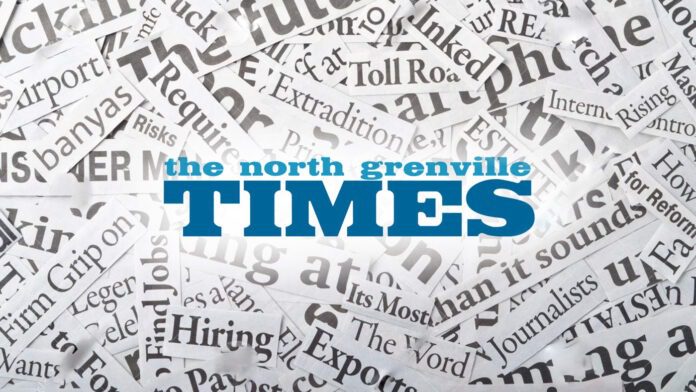Merrickville is the home of one of Ontario’s most prominent “potato guys.” William (Bill) Langenberg immigrated to Canada from the Netherlands in 1968, as part of a program paid for by the Canadian and Dutch government to bring more farm labour to Canada. During his first year in Canada, he worked at a tobacco farm in Southern Ontario, before heading to the University of Guelph to pursue a degree in agriculture.
During his undergraduate degree, Bill was inspired by one of his professors to learn more about the environment. Coming from a farming background in Holland, Bill already knew that pesticides were not the way to go for protecting produce from dis- eases and pests. However, using environmental factors to protect crops was not a common practice in Canada at the time. Bill and three of his classmates decided to create their own Master’s degree program called “Environmental Biology”, and he spent the next two years studying disease development in carrots in the Holland Marsh. “After two years, we were able to reduce the sprays per season from fourteen to three or four,” Bills says.
After finishing his Master’s degree, he accepted the position of a lecturer, researcher and extension specialist in Horticulture at the Ministry of Agriculture, Food and Rural Affairs, working out of Kemptville College. Bill says he wasn’t sure what to make of Kemptville when he first got here, as the population was only 2,400 in 1975.
So, what does this have to do with potatoes? As a researcher at the College, Bill was given the job of conducting potato variety trials for the Agriculture Research Institute of Ontario (ARIO), its subsidiary, the Horticulture Research Institute of Ontario (HRIO), and the Potato Marketing Board. He worked on this project with plant scientist and potato breeder for Agriculture Canada, Dr. Gary Johnston, from the University of Guelph.
Bill’s Dutch heritage married well with this project, as potatoes had always been a staple in his household growing up. He was particularly fond of the Dutch potato, “Bintje”, which had a yellowish flesh. As part of the trial, Bill would bring the different unnamed varieties of potato to his home in Kemptville, to be tested at their dinner table. “They were boiled, baked and fried,” Bill remembers. One day, Gary got in touch with Bill about testing a new variety of yellow potato, similar to his beloved “Bintje”. Bill tested the potato (called G6666-4y) over and over in his kitchen. “I loved it,” he says. “The variety had a buttery flavour and was an excellent storage potato.”
Through his work with potatoes, Bill hatched a plan to change how they were marketed to the public. He believed that they should sell potatoes by variety name in grocery stores, rather than the typical red, white and russet. Because of this, G6666-4y was given the name Yukon Gold, named for the Yukon River and the gold rush, and its beautiful creamy golden flesh.
Unfortunately, the Potato Marketing Board did not know how to market this new variety of potato, and it didn’t do well on the market. Bill was furious when Michigan State University, which had been given some seed potatoes for trials, started wrapping them in gold foil and selling them as Michigan Gold Bakes. In 1983, Bill says he “blew his stack” at a Potato Marketing Board meeting in London, Ontario, over their incompetence in selling the Yukon Gold. “The press was there,” Bill remembers. “All of a sudden, I received interviews from across Canada, all the way to the Yukon, about this hot potato called the Yukon Gold.”
In 1987, much to the chagrin of Kemptville College management, Bill began to grow and sell Yukon Gold potatoes himself. “Marketing was not my job,” he says. Even with a bacterial disease that infected potatoes and caused all seed potato transport to be banned, Bill was still able to get some Yukon Gold seed potatoes to Kemptville and distribute them throughout the Ottawa Valley. “This got me into some hot water,” Bill says. “My name became attached to the Yukon Gold potato.”
Yukon Gold became very popular, and anyone who shopped in the produce section in the 1990s would remember seeing them as an option, among the other potato varietals in the store. Unfortunately, the Yukon Gold potato slowly faded away after the distribution rights for the variety were bought by the McCain Potato Company. Bills says that today you can find Yukon Gold potatoes here and there on the shelves, but they are mixed in with other “yellow flesh” potatoes that don’t have the characteristics of the Yukon Gold.
Since his foray into the world of potatoes, Bill has stayed true to his roots. Even after being let go from the College in 2000, Bill continued to operate a garden out of his home. In 2004 he started Grenville Herb Farm, and has been a friendly face at the Kemptville Farmers Market since 2006. “My relationship with folks in Kemptville is communication and education,” he says, adding that he is always happy to answer any questions people have about horticulture. He believes strongly in the healing power of horticulture and runs horticulture therapy programs for people with developmental disabilities in group homes throughout the United Counties of Leeds and Grenville.
Although Bill clearly keeps himself busy with of other endeavours these days, he still grows Yukon Gold potatoes in his home garden and is happy to share them with anyone who might be interested.







That’s a great story. Thanks.